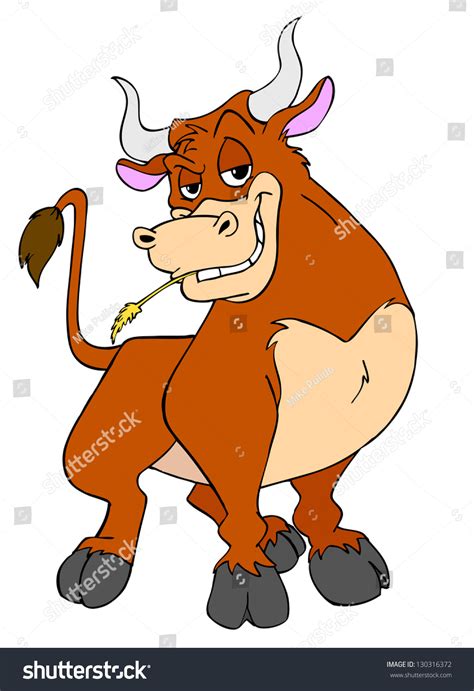
The Role of Bull Stock in Angus
Bull stock plays a pivotal role in the Angus seedstock industry, as it directly influences genetic quality and overall herd performance. Selecting superior bull stock enhances traits such as growth rate, fertility, and disease resistance, which are essential for optimizing herd productivity. Moreover, the strategic use of bull stock can lead to improved reproductive efficiency and calf vigor, resulting in healthier livestock and better market outcomes.
"Investing in high-quality bull stock is akin to investing in the future of your herd." This statement underscores the long-term benefits that come from making informed breeding decisions. As trends shift towards more sustainable farming practices, the selection of well-researched sires becomes increasingly critical. Additionally, by focusing on integrating genetic optimization strategies, ranchers can maximize profitability while maintaining ethical breeding standards. Therefore, understanding and leveraging the importance of bull stock is vital for any Angus operation aiming to thrive in a competitive market.
For more insights on optimizing agricultural practices for better productivity, visit Jackson Hole: A Spectacular Fusion of Nature and Adventureor explore The Significance of Global Currency in Modern Economics.

Key Trends in Angus Seedstock
The Angus seedstock industry is currently witnessing several key trends that are shaping its future. One notable trend is the increasing emphasis on genetic evaluation. Producers are investing in advanced genomic technologies to select bulls that possess desirable traits such as growth performance, carcass quality, and disease resistance. This data-driven approach not only enhances the quality of the seedstock but also improves the overall profitability of herds.
Additionally, there is a growing demand for sustainable breeding practices. Many producers are adopting strategies that prioritize environmental stewardship and animal welfare. This shift reflects consumer preferences for sustainably raised beef and encourages breeders to focus on traits that contribute to the longevity and health of their animals.
Another significant trend is the rise in bull leasing options, which allows ranchers greater flexibility in managing their breeding programs while minimizing upfront costs. By leasing top-tier sires, producers can access superior genetics without the long-term financial commitment associated with outright purchases.
The integration of technology is also prominent, with many operations utilizing digital platforms for marketing and sales to reach broader audiences efficiently. As these trends continue to evolve, they underscore the importance of innovation and adaptability within the Angus seedstock sector. More details can be found hereand in this resource.
Market Dynamics of Bull Stock
The dynamics of bull stock play a crucial role in shaping the Angus seedstock industry. Market fluctuations are influenced by various factors, such as supply and demand, breeding technology advancements, and consumer preferences for high-quality beef. Producers are increasingly recognizing the value of investing in superior bull genetics to enhance herd performance and profitability. Additionally, the emergence of online marketplaces is transforming how breeders and buyers connect, allowing for greater access to quality animals. As these market dynamics evolve, stakeholders must adapt by adopting strategic sourcing practices and utilizing resources like Bull Stock Mediato stay informed about industry trends. Furthermore, awareness around quality assurance measures enhances consumer trust and encourages demand for Angus seedstock. The collective impact of these elements establishes a competitive environment that shapes future breeding decisions within the industry. For insights on investment strategies related to bull stock, visit this Reddit discussion.
Influence of Exemplary Sires
Exemplary sires play a crucial role in shaping the Angus seedstock industry by significantly influencing the genetic quality of herds. These sires possess desirable traits such as superior growth rates, feed efficiency, and overall hardiness, which are vital for enhancing herd performance. When breeders select high-quality sires, they set a foundation for better offspring who are more likely to exhibit these sought-after characteristics. This selection process not only improves individual animal quality but can also lead to better market performance and profitability for ranchers. The effective use of exemplary sires can ultimately result in stronger genetic lines that contribute to the long-term success of the Angus breed. As ranchers continue to refine their breeding strategies, the impact of these exceptional bulls will remain a key focus in advancing herd quality within the industry. By investing in top-tier sires, breeders can strengthen their herds and adapt to evolving market demands while ensuring sustainability and profitability. For more insights on liquidity concerning bull stock dynamics, you can refer to Bradford Tax Instituteand Robinhood.
Enhancing Herd Quality with Bulls
The selection of high-quality bulls plays a crucial role in enhancing the overall quality of herd genetics. By integrating exceptional sires with desirable traits, ranchers can significantly improve the health and productivity of their herds. This not only leads to better growth rates but also improves adaptability to changing environmental conditions. Furthermore, effective bull selection can enhance reproductive performance and lower breeding costs over time. As a result, investing in superior bulls is often linked to increased profitability, making it a strategic priority for Angus seedstock producers. As trends in the bull stock market evolve, producers should remain attentive to new technologies and data on bloodlines that can optimize their herd’s genetic potential. For further insights into market trends and stock performance, check out resources like Yahoo Financeand Stocktwits.
Bull Stock’s Profitability Impact
The profitability of the Angus seedstock industry heavily relies on the quality and genetic potential of bull stock. High-quality bulls contribute significantly to herd improvement, enhancing traits like growth rates, feed efficiency, and reproductive performance. As producers increasingly recognize the value of investing in superior sires, they see a direct correlation between these investments and overall profit margins. Moreover, the careful selection of bull stock can lead to more predictable calving outcomes and improved carcass quality, which are vital in meeting market demands. As such, leveraging robust genetic backgrounds within bull stock not only optimizes herd performance but also ensures sustainable profitability for producers navigating a highly competitive market.
Future Trends for Bull Stock
As the Angus seedstock industry continues to evolve, several key trends are emerging in the context of bull stock. One notable direction is the increasing emphasis on genetic diversity to enhance resilience against diseases and climate challenges. Breeders are now prioritizing not just performance traits, but also adaptability and longevity in their selections. Additionally, technological advancements are playing a crucial role, with genomic testing becoming more accessible, allowing producers to make informed decisions based on precise genetic information. The use of data analytics in breeding programs is also on the rise, enabling a deeper understanding of herd performance and facilitating strategic mating decisions. Moreover, the growing consumer demand for sustainably raised beef is prompting producers to adopt practices that ensure environmental stewardship while maintaining herd profitability. Overall, these trends indicate a shift towards more integrated and science-based approaches in managing bull stock within the Angus seedstock sector.
Evaluating Breeding Strategies
In the Angus seedstock industry, selecting the right breeding strategies is essential for improving herd quality and overall farm profitability. Various approaches are currently being explored, including line breeding and crossbreeding, each with its unique benefits. Line breeding focuses on reinforcing desirable traits by mating closely related bulls and cows, which can enhance specific genetic characteristics. Alternatively, crossbreeding introduces new genetics to the herd, potentially increasing vigor and adaptability. Moreover, utilizing genomic testing helps breeders make informed decisions by identifying superior sires with desirable traits such as higher growth rates and better feed efficiency. By analyzing data from performance records, breeders can refine their strategies to align with market demands effectively. As these breeding programs evolve, they will continue to play a pivotal role in shaping the future of the Angus seedstock industry.